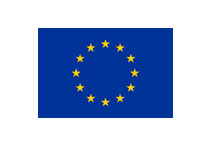There are 4 strands of research activity within INTERWASTE, each of which address one or more research objectives (ROs) and workpackages (WPs). These strands are:
- Strand 1 - Characterising and developing understanding of emissions/flow of FRs in the waste stream and their environmental impacts (ROs 1-3)
- Strand 2 - Waste water epidemiology applied to consumer chemicals (PPCPs and FRs) (RO4)
- Strand 3 - Exploring the potential utility of in vitro techniques to elucidate uptake by biota (e.g. bioaccessibility) of FRs present in the waste stream, along with the pathways and rates of degradation/metabolism of such FRs, (RO5) and
- Strand 4 - Exploitation of state-of-the-art analytical techniques to help address issues tackled in strands 1-3), coupled with promotion of contaminant measurement quality and harmonization (ROs 6 and 7)
INTERWASTE’s research objectives (ROs)
These are:
- RO1 To exchange knowledge of and best practice in methods for rapid and cost-effective identification of waste items containing restricted and novel FRs (strand 1, WP1)
- RO2 To develop scientific understanding of the contamination of biota arising from the processing of waste items containing FRs (strand 1, WP2)
- RO3 To develop scientific understanding of the contamination of the abiotic environment arising from the processing of waste items containing FRs (strand 1, WP3)
- RO4 To further understanding of the sources, fate and behaviour of PPCPs and FRs in the sewerage system (strand 2, WP4)
- RO5 To enhance scientific knowledge of the use of in vitro techniques for elucidating uptake and metabolism of PPCPs and FRs (strand 3, WP5)
- RO6 To exchange best practice in analytical chemistry techniques for measuring FRs and PPCPs (strand 4, WP6)
- RO7 To conduct an interlaboratory comparison of the capacity of INTERWASTE participants to measure FRs in relevant environmental samples and to explore such a comparison for PPCPs (strand 4, WP7)
This will be achieved by a co-ordinated programme of collaboration centred around 87 research secondments totalling 224 researcher months between world-leading research groups both within and outside the EU; coupled with 4 annual research workshops to discuss the latest findings.

This project has received funding from the European Union’s Horizon 2020 research and innovation programme under the Marie Skłodowska-Curie grant agreement No 734522.
Any information expressed on these pages reflects only the views of the authors and the Research Executive Agency is not responsible for any use that may be made of the information these pages contain.